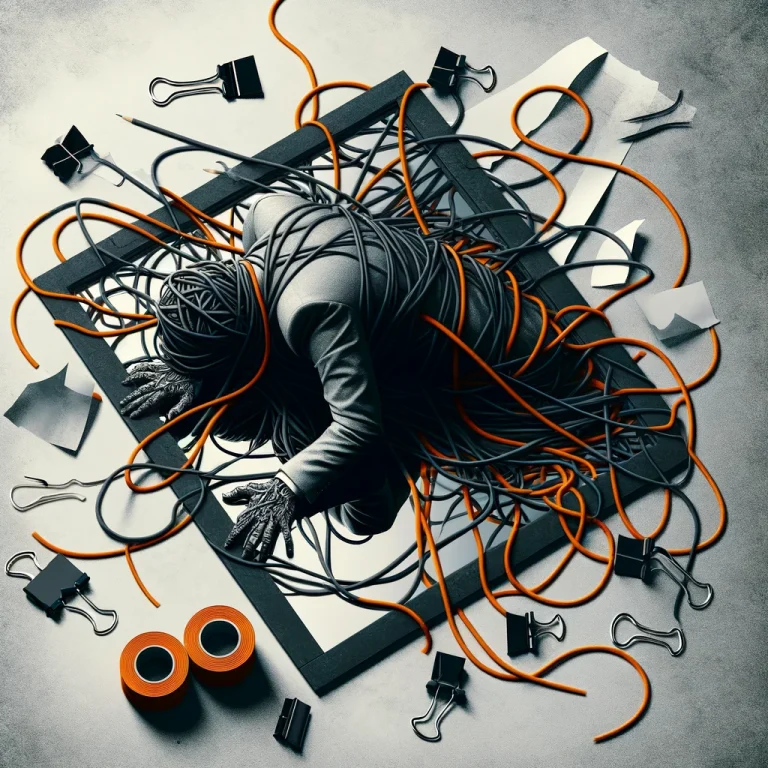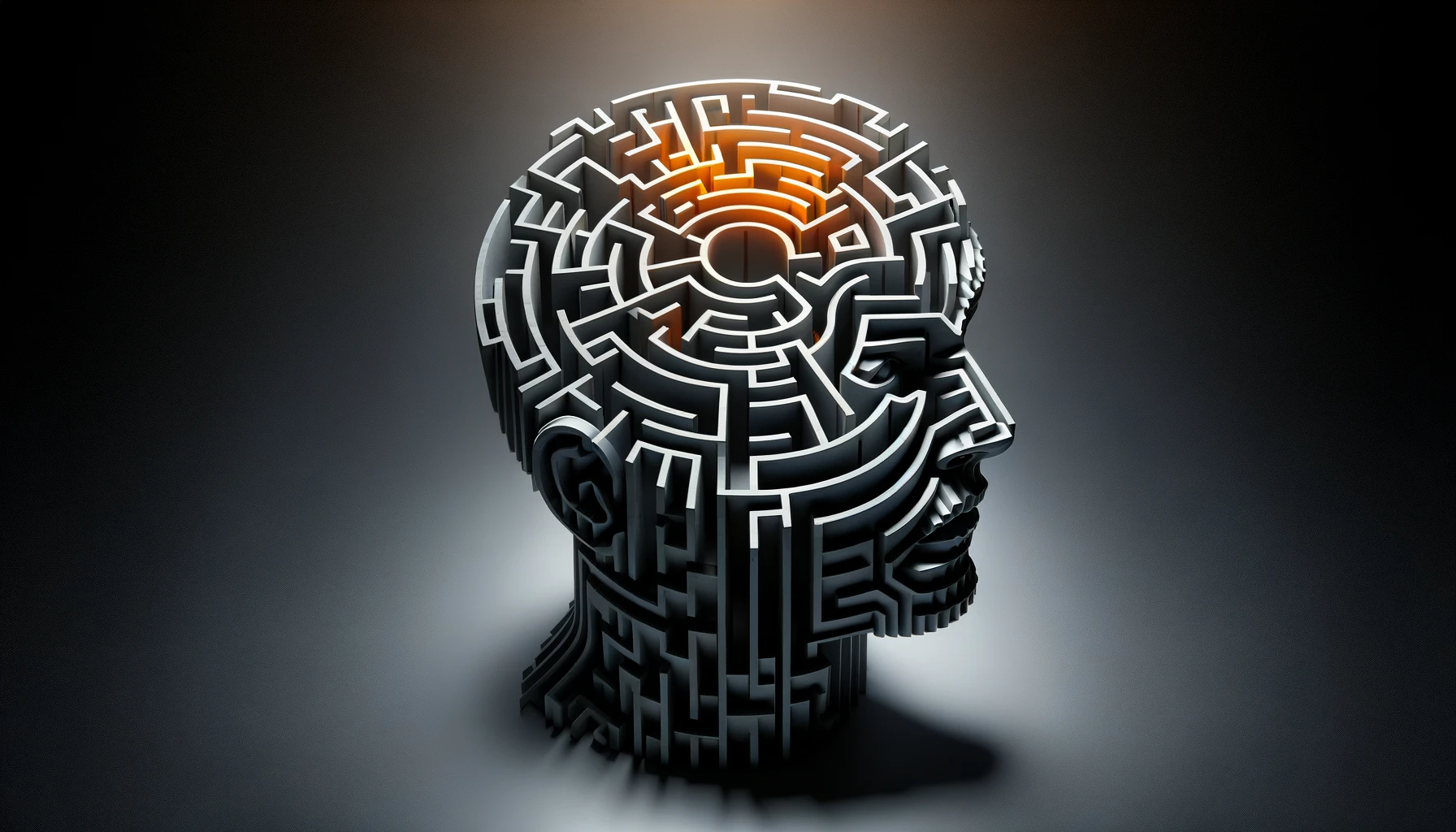Introduction to Decision-Making Challenges
Decisions, decisions, decisions. Whether it’s choosing a career path, deciding what to have for dinner, or picking a Netflix show to binge-watch, decision-making is an integral part of our daily lives. Yet, it’s not always as straightforward as we’d like it to be. Let’s embark on a journey to uncover the obstacles that make decision-making such a complex maze and, more importantly, how we can navigate through it with greater ease.
At the heart of our daily lives is a constant stream of choices, each with its own set of challenges. The Complexity of Choices isn’t just about the number of options but the impact each decision could have on our lives. The Paradox of Abundance shows us that having too many choices can be just as paralyzing as having too few. Ever stood in the cereal aisle overwhelmed by the options? That’s the paradox at work.
Table of Content
- Introduction to Decision-Making Challenges
- Psychological Barriers to Effective Decision-Making
- Emotional Influences on Decision-Making
- Social Factors Affecting Decisions
- Information Overload: A Modern Dilemma
- Strategies for Overcoming Decision-Making Obstacles
- Conclusion: Empowering Your Decision-Making Journey
- FAQ Secti

Psychological Barriers to Effective Decision-Making
Our minds can be our own worst enemy when it comes to making decisions. The fear of making the wrong choice can be incredibly stifling. This isn’t just about small, everyday decisions but also the big, life-changing ones. Imagine standing at a crossroads, with each path representing a different choice. The fear isn’t just about what might happen if you choose the wrong path but also about the opportunities you might miss by not choosing the other paths. This fear can lead to a state of inaction, where the decision-maker is frozen, unable to choose any path at all. This phenomenon, known as Analysis Paralysis, illustrates the paralyzing effect fear can have on our ability to make decisions.
Then there’s the Perfectionism Trap, an all-too-common pitfall where the desire for the perfect outcome overshadows the decision-making process. This quest for perfection can be paralyzing, leading to endless deliberations and comparisons. The irony is that the pursuit of a flawless decision often leads to no decision being made at all. Perfectionists may find themselves caught in a loop of “what if” scenarios, constantly questioning their choices and the potential outcomes, which can significantly delay or derail important decisions.
Emotional Influences on Decision-Making
Our emotions wield a powerful influence over our decision-making capabilities. They can color our perception, leading us to make choices based on how we feel in the moment rather than what might be best in the long term. For example, decisions made in the heat of anger or the depths of sadness are often ones we might later regret. The emotional weight of a decision can distort our understanding of the risks and benefits, pushing us toward choices that align with our current emotional state rather than our overall objectives.
Stress, in particular, can have a profound impact on the quality of our decisions. Under stress, our brain shifts to a fight-or-flight mode, simplifying our thought processes and pushing us toward quicker, often less optimal decisions. This can be particularly detrimental in high-stakes situations where careful deliberation is crucial. The challenge, then, is to recognize when stress is influencing our decision-making and take steps to mitigate its effects, such as by taking a break, practicing mindfulness, or seeking the perspective of a calm and collected friend or colleague.

Social Factors Affecting Decisions
The influence of those around us can be subtle yet significant. Peer pressure, for instance, does not vanish after adolescence. It morphs, manifesting in various aspects of our lives, from the professional choices we make to the personal preferences we express. This can lead to decisions that align more with the expectations or norms of our social group than with our own true desires or best interests. The need for acceptance and the fear of social isolation can drive individuals to conform, sometimes at the expense of their authenticity and happiness.
Similarly, the role of culture and family in shaping our decision-making cannot be overstated. The values, beliefs, and norms ingrained in us from a young age influence our perspectives and choices. This cultural and familial imprint can guide us, for better or worse, toward decisions that may or may not align with our personal growth and happiness. Recognizing and understanding these influences can empower us to make decisions that truly reflect our individual values and aspirations, even if it means charting a course that diverges from established paths.
Information Overload: A Modern Dilemma
In today’s digital age, we’re bombarded with an unprecedented amount of information, leading to what’s known as the paradox of choice. When faced with too many options or too much information, the decision-making process can become overwhelming. This overload can lead to decision fatigue, where the quality of our decisions deteriorates over time, or to a complete shutdown, where making any decision becomes an insurmountable challenge.
Strategies for managing information overload are essential for navigating this modern maze. Prioritizing information, setting clear objectives, and learning to filter out irrelevant details can help streamline the decision-making process. It’s about finding a balance between being informed and being overwhelmed, allowing us to make decisions that are both thoughtful and timely.

Strategies for Overcoming Decision-Making Obstacles
Building confidence in our decision-making abilities is crucial for overcoming these obstacles. The Small Wins Strategy is a powerful approach, focusing on achieving incremental successes that build our confidence over time. Each small decision made, and action taken, serves as a stepping stone, gradually strengthening our decision-making muscles. This approach not only boosts confidence but also provides valuable learning experiences, allowing us to refine our decision-making skills with each step.
In the battle against decision fatigue, simplifying choices and allowing ourselves breaks and downtime are vital tactics. By reducing the number of decisions we need to make in a day and giving ourselves permission to step back and recharge, we can preserve our decision-making energy for the choices that truly matter. Incorporating these strategies into our daily lives can help us navigate the complexities of decision-making with greater ease and resilience, leading to more satisfying and successful outcomes.
Conclusion: Empowering Your Decision-Making Journey
Decision-making is a complex process, fraught with psychological, emotional, and social hurdles. However, by understanding these obstacles and employing strategies to navigate them, we can make the journey a bit less daunting. Remember, no one makes perfect decisions all the time, and that’s okay. Each decision, whether right or wrong, is a step forward in our journey, an opportunity to learn, grow, and become more adept at navigating the maze of life.
FAQs
1: How can I improve my decision-making skills?Practice, reflection, and actively seeking out diverse perspectives can enhance your decision-making skills. Also, don’t shy away from making decisions; the more you make, the better you’ll get at it.
2: What is decision fatigue, and how can I avoid it?Decision fatigue happens when you’re overwhelmed by too many choices. To avoid it, try to simplify your options and make important decisions when you’re fresh and rested.
3: How do cognitive biases affect our decisions?Cognitive biases can lead us to make irrational decisions by skewing our perception based on past experiences, beliefs, and emotions. Being aware of these biases is the first step in mitigating their influence.
4: Can making decisions become easier with practice?Absolutely! Like any skill, decision-making improves with practice. The more decisions you make, the more confident and adept you become at navigating the decision-making process.
How can I handle the fear of making wrong decisions?Accept that making mistakes is a part of the learning process. Reflect on your decisions, learn from them, and remember that every choice, good or bad, is a step forward.
Remember, decision-making is an art and a science, intertwined with our emotions, psychology, and the world around us. Embracing the complexity of this process can make us more resilient, confident, and effective decision-makers. So, take a deep breath, and let’s tackle those decisions one step at a time.
